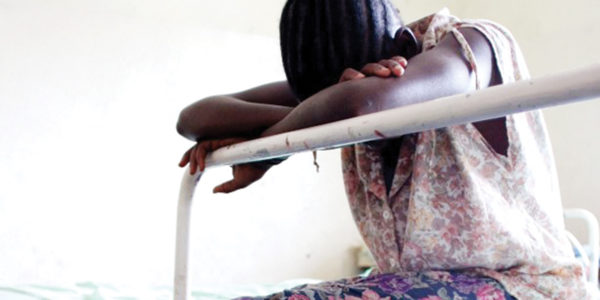
ABOUT 30% of the sexual assault victims do not present for emergency medical care within 72 hours, exposing them to sexually transmitted diseases and unwanted pregnancies, a study has revealed.
BY MUNESU NYAKUDYA
The study, titled: “Clinical Care Given to Victims of Sexual Assault at Kadoma General Hospital, Zimbabwe: a Secondary Data Analysis, 2016”, recorded that the most vulnerable age group was 16 years and median age was 14 years.
“Almost all victims were female while perpetrators were male. Victims presenting after 72 hours of abuse were 70% and this late presentation compromised the benefits of PEP (post-exposure prophylaxis), emergency contraception and forensic evidence gathering,” the study said.
“ The level of penetrative evidence of abuse was high at 83%. However, 30% of victims presenting in time did not have full coverage for essential interventions. Suboptimal administration of PEP, emergency contraception, prophylactic antibiotics.” The study also said that condom use by perpetrators occurred in 2% of the victims.
At least 69% of the victims who presented within 72 hours were given emergency contraception and 51% of victims were given HIV post-exposure prophylaxis. Prophylactic antibiotics were administered in 33% while all the five victims with sores and discharge were given antibiotics.
“Baseline HIV testing was done in 22%, while 2% had repeat HIV tests after 3 months. Of the eight victims initially HIV negative at baseline testing, three became HIV positive on follow-up testing. No swabs for microscopy culture and sensitivity were done in those with vaginal discharge. Forensic evidence was gathered in 13% of the victims presenting on time.
“Of the follow-up tests done including HIV test, pregnancy, syphilis and urine tests. Nevertheless, no proper counselling and psychological support was offered to all victims seen whilst follow-up was done in 10%,” the study said.
- Chamisa under fire over US$120K donation
- Mavhunga puts DeMbare into Chibuku quarterfinals
- Pension funds bet on Cabora Bassa oilfields
- Councils defy govt fire tender directive
Keep Reading
The report recommended awareness campaigns for victims to seek medical care within 72 hours of sexual assault and the need for the introduction of standalone clinics.
Worldwide more than 30% women have experienced physical or sexual abuse. In sub-Saharan Africa and Zimbabwe, an estimated 65% and 35% women respectively have been physically or sexually abused. The World Health Organisation recommends standard care for victims of sexual abuse that includes consent, documentation, medical examination, investigations, treatment and referral.











